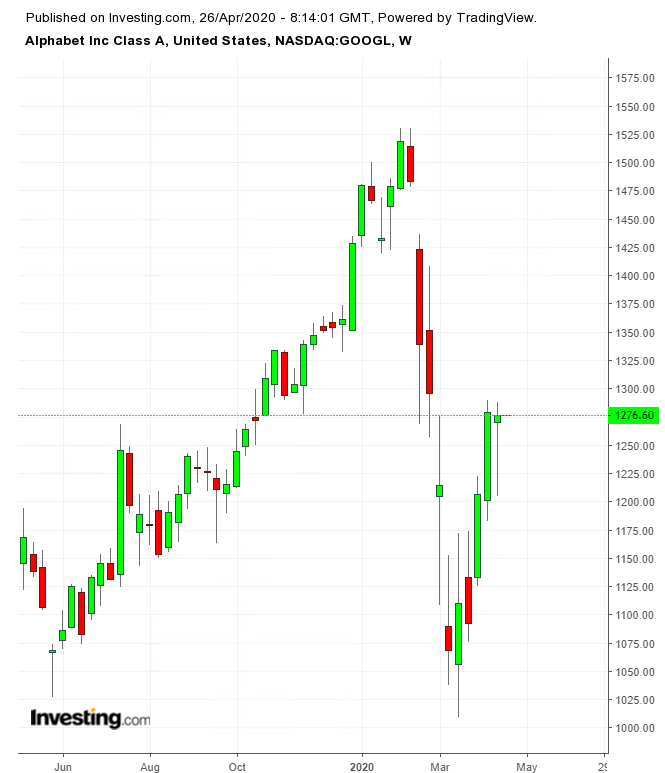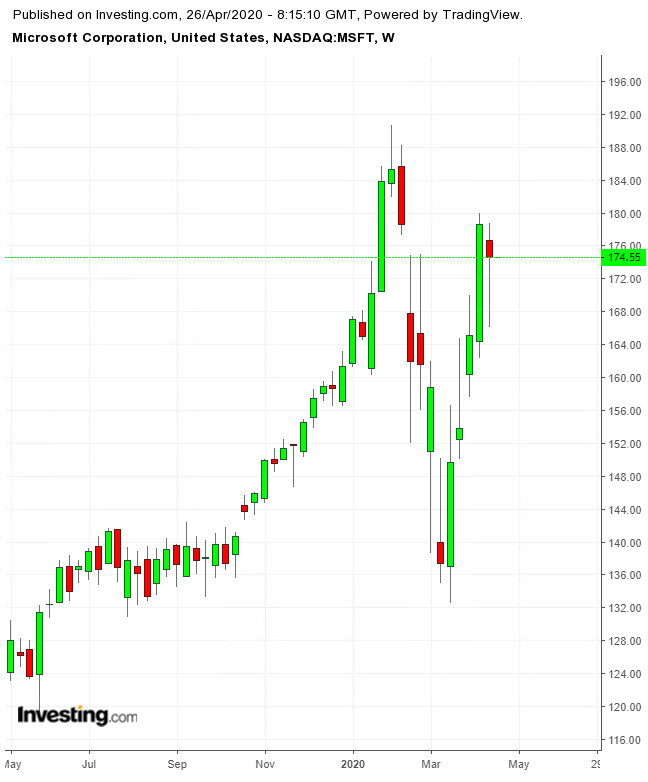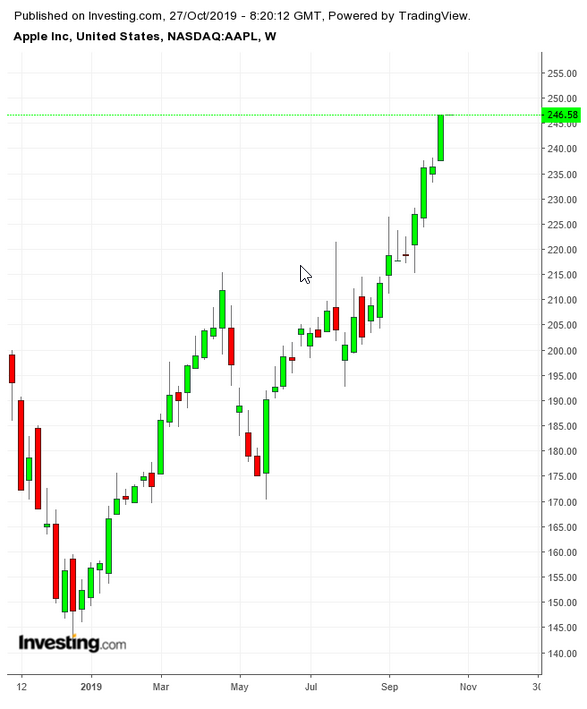During the upcoming week, which is packed with a variety of mega cap earnings reports, investors will get a fresh look at how deeply the COVID-19 pandemic is hurting corporate America.
Over the past week, still pressured by investor worries, the S&P 500 was down 1.3%, providing fresh evidence of serious damage to the U.S. economy. Indeed, as of this past Thursday's initial jobless claims report, 26 million workers have filed unemployment claims as companies struggling to preserve cash reduce their staffing.
Despite the fear-filled environment, a number of key earnings reports will be released which investors can’t afford to ignore. Our focus will be on three tech giants whose reports could help clarify whether their latest share price gains are justified:
1. Alphabet
Alphabet (NASDAQ:GOOGL), Google's parent company, will be reporting first quarter 2020 earnings on Tuesday, April 28, after the market close. On average, expectations are for earnings per share of $10.70 on revenue of $41 billion.

Shares of Google have remained under pressure on concerns that the possible recession triggered by the coronavirus will force companies to cut their digital ad spending, hurting this internet content and information behemoth. Google stock closed on Friday at $1,276.60, down 4% for the year, after rising more than 30% in 2019.
The global health crisis has hammered the retail and travel sectors in particular and these are major Google advertising customers.
“The entire global economy is hurting, and Google and Alphabet are not immune to the effects of this global pandemic,” Chief Executive Officer Sundar Pichai wrote in a memo to employees this month that was cited by Bloombeg.
“We exist in an ecosystem of partnerships and interconnected businesses, many of whom are feeling significant pain.”
2. Microsoft
One of Wall Street’s tech darlings, Microsoft (NASDAQ:MSFT), reports fiscal Q3 2020 earnings after the market close on Wednesday, April 29. The computer giant is likely to post $1.20 a share profit on sales of $33.8 billion.

If the past provides any clues, the tech giant should show robust growth momentum fueled by a surge in technology investments and the strength of its core Office products. Because of this strength, shares of Microsoft have largely remained immune from the current crisis, gaining almost 11% for the year so far. The stock closed on Friday at $174.55 after rising 1.83% for the day.
Amid the economic uncertainty created by the coronavirus outbreak, Microsoft is a beneficiary of the current 'shelter in place' environment. It's a tech stock benefiting from the increased demand for connectivity as people work and interact socially from home. As well, investors expect businesses and governments will continue to spend on their transition to cloud computing—which has been the company's key growth area in recent years.
3. Apple
Apple (NASDAQ:AAPL), the maker of popular iPhones as well as computers and smart wearables, will report Q2 2020 results on Thursday, April 30, after the market close.

The outbreak of, and response to, COVID-19 has raised several challenges for Apple, including disruption of its China-based supply chain for manufacturing. As well, Apple’s stores outside China are closed until further notice, for example, and many regions in the U.S. are under stay-at-home orders with a lack of clarity, as to when restrictions will be eased.
Unit sales for iPhones are set to drop by 36% year-on-year in the second quarter as the global economy takes a hit from the pandemic, before recovering to just a 2% decline by the fourth quarter of this year, according to a forecast by Goldman Sachs.
While Apple's stock has risen 26% off a low hit last month, shares remain 14% below the February peak. AAPL rose about 3% on Friday to close at $282.97.
The company’s massive innovation ecosystem and its huge cash hoard are some of the things keeping investors attracted and hopeful about the Cupertino, CA-based tech behemoth's future. The maker of the iPhone currently has about $207 billion in cash on hand with about $108 billion in both short-term and long-term debt.
